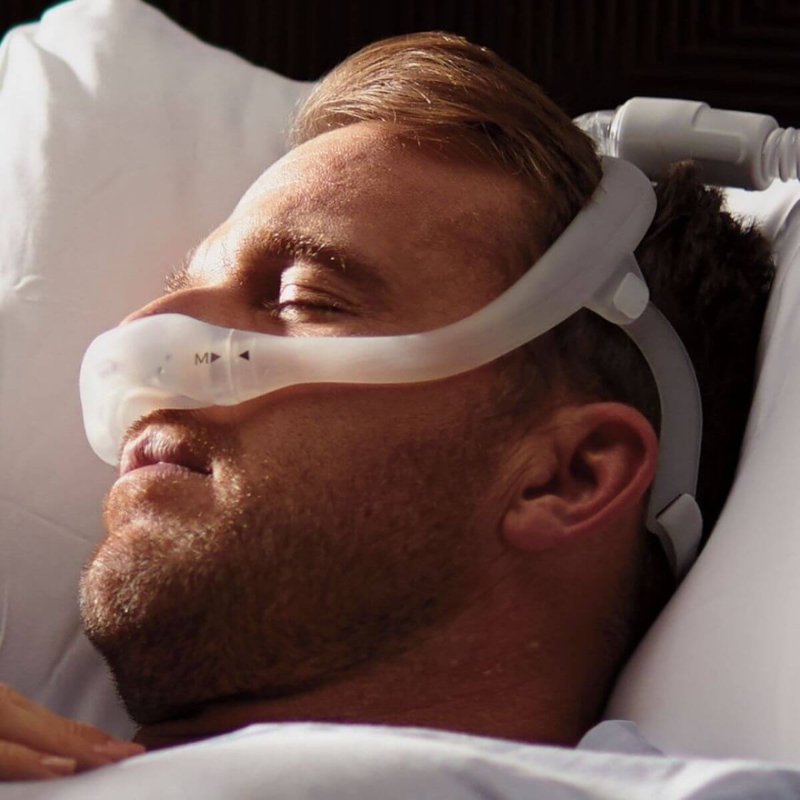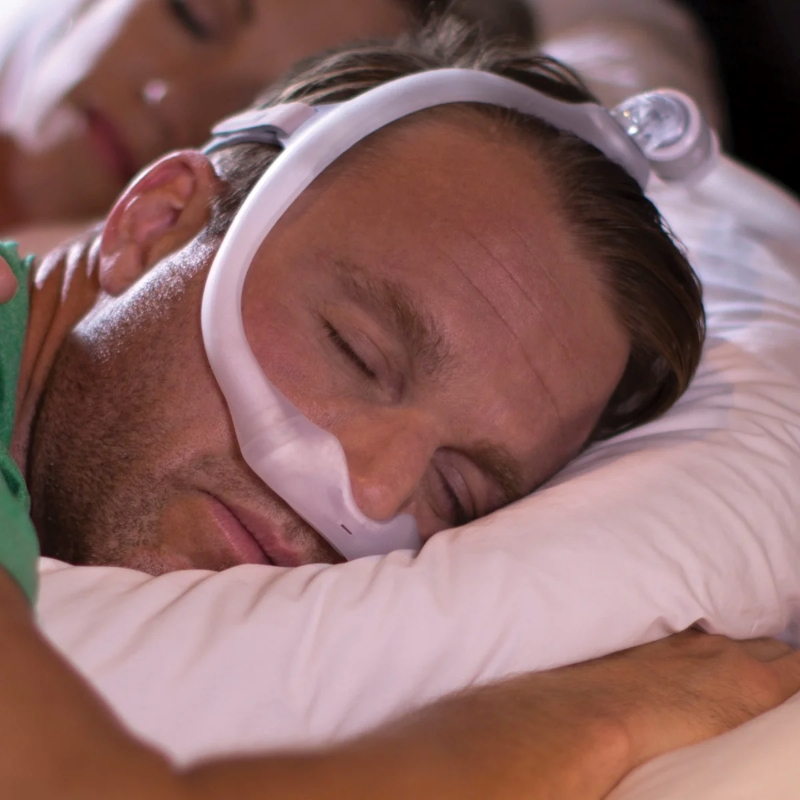If you have sleep apnea, your doctor will recommend a CPAP mask, which is a popular option to help keep your breathing steady while you sleep. There are a few things to think about before you make a purchase. For instance, if you breathe through your nose or tend to sleep on your back, a sleep apnea nasal mask could be a great fit for you. They're especially good for folks with facial hair since they sit nicely on the face and don’t give you that claustrophobic vibe that some full-face masks do.
CPAP Mask Options
There are a few different types of masks you can use with CPAP, such as:
• Nasal masks
• Nasal pillow masks
• Oronasal masks
Nasal and oronasal masks are the most commonly used for CPAP therapy. Experts often suggest starting with a nasal mask and then exploring other options if you’re having trouble with fit or effectiveness. Choosing the right CPAP mask is crucial for the success of your therapy.
Nasal Masks
A sleep apnea nasal mask is made to deliver pressurized air through your nose. It features a frame that holds a soft silicone cushion, which fits snugly around your nose, including the bridge and just above your upper lip. These masks are held in place with a strap that goes behind your head.
When compared to other CPAP masks, nasal masks have some perks, like:
• Generally more comfortable
• Fewer issues with air leaks
• Longer wear time
• More affordable
However, nasal masks might not work for everyone. For instance, if you primarily breathe through your mouth, a nasal mask might not be the best choice. Also, having a moustache can affect the fit, leading to air leaks.
Nasal Pillows
A nasal pillow is a specific type of CPAP mask that features small plastic inserts resembling earbuds that fit into your nostrils. The mask delivers the prescribed air pressure to keep your airway open. Its tiny cushions sit at the tip of your nose, helping to minimize issues like air leaks and feelings of claustrophobia.
Nasal pillow masks have a unique triangular design that fits snugly around the nose. They’re held in place with stretchy straps that wrap around the head. You can find them in various sizes to accommodate different nose shapes. These masks work great for folks who breathe through their noses. If you’re a mouth-breather, you can use a chin strap, which is a stretchy band that goes around your head and under your chin to keep your mouth shut while you sleep.
However, if you primarily breathe through your mouth, a nasal mask isn’t the best choice for you. Also, if you have facial hair, these masks might not seal properly against your skin. Nasal pillows might be a better fit for certain individuals, such as:
• Those with facial hair
• People who feel claustrophobic
• Anyone looking for the smallest mask option
Nasal pillows are just as effective as other nasal masks for CPAP therapy, but they might struggle with higher pressures without leaking.
Oronasal Masks
Oronasal masks provide air through both the nose and mouth. They can be a good choice for those who experience “mouth leaks” when using nasal or nasal pillow masks. Mouth leaks happen when the pressurized air escapes from the mouth while using the CPAP machine.
Adjusting Your Mask
Most commercial CPAP masks come in standard sizes like small, medium, or large. However, these sizes often don’t cater to everyone’s unique facial shapes. Luckily, there are extra accessories or customizable options available to help tailor the mask to your needs.
For CPAP therapy to work its best, it’s crucial to find a mask that fits snugly and creates a good seal. Once you’ve got a mask that seals well, you can collaborate with your doctor to make any further tweaks for added comfort.
Finding the Best Mask
Research is ongoing to see if personal traits like age, gender, body size, and the shape of your face and nose can affect which mask is best for you.
As you team up with your healthcare provider and explore your choices, consider these questions to help you pick the right mask:
• Do you have facial hair?
• Do you tend to breathe through your mouth while you sleep?
• Are you an “active sleeper” who shifts positions a lot during the night?
• Do you feel claustrophobic?
Benefits
Nasal pillows are a fantastic option for those who struggle with claustrophobia. Even if you don’t have that issue, dealing with a bulky full-face mask can be tough for some. Plus, many find it uncomfortable to wear something that covers their eyes. Nasal pillows are perfect in this regard since they don’t block your vision and have minimal contact with your face.
Facial Hair
For guys with facial hair, like thick beards or moustaches, getting a good seal with a regular CPAP mask can be tricky. A nasal pillow mask can help solve this problem, providing a snug fit and delivering CPAP pressure right into the nostrils without discomfort.
No Face Marks
A lot of people shy away from traditional masks because they can leave noticeable marks on the face. Full-face masks often create deep impressions that can be bothersome and not very attractive. These marks can take a while to fade, and not everyone has the luxury of time, especially in the mornings. Nasal masks are a great alternative, and some folks even like to switch between different styles to keep those marks at bay.